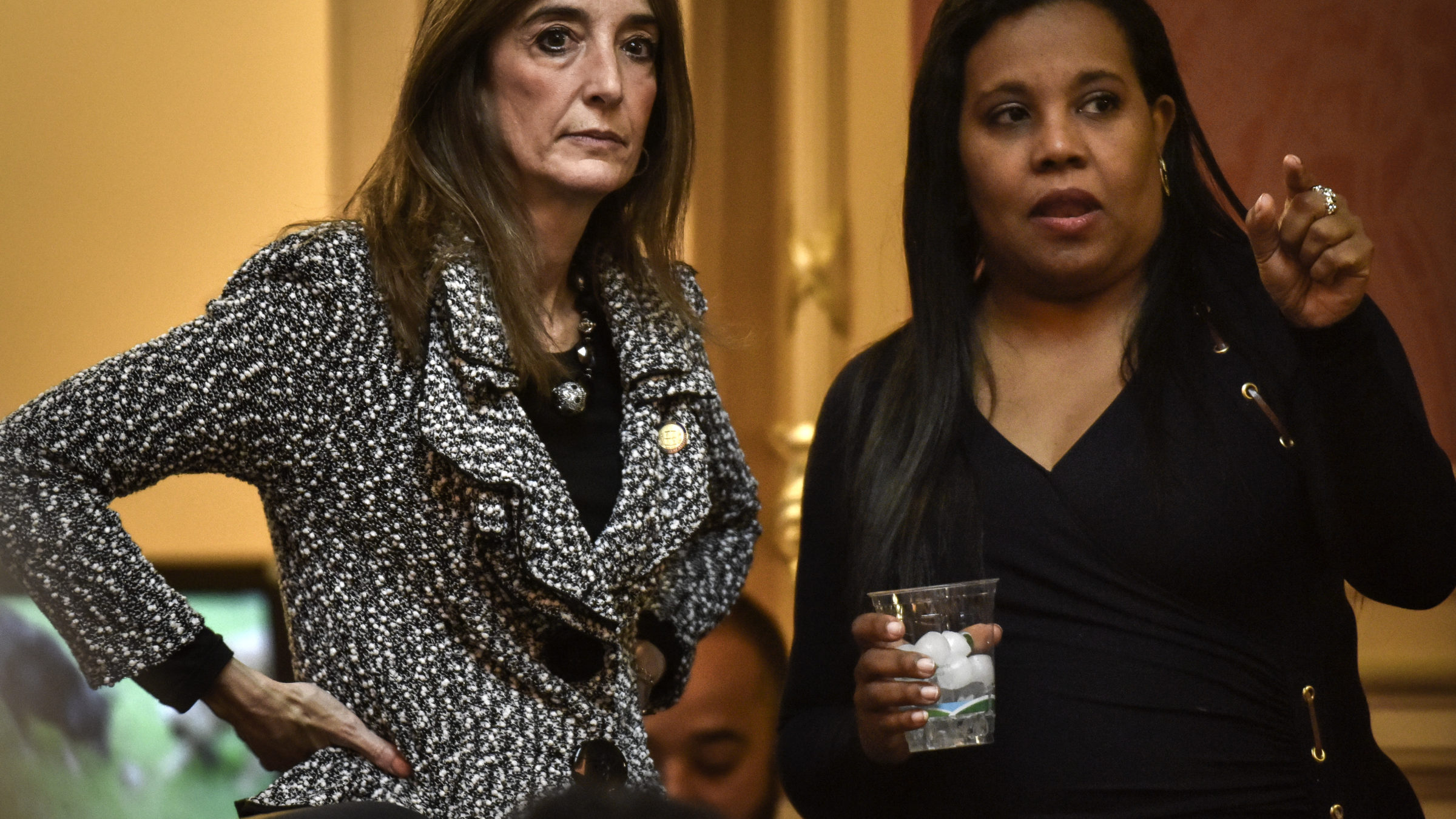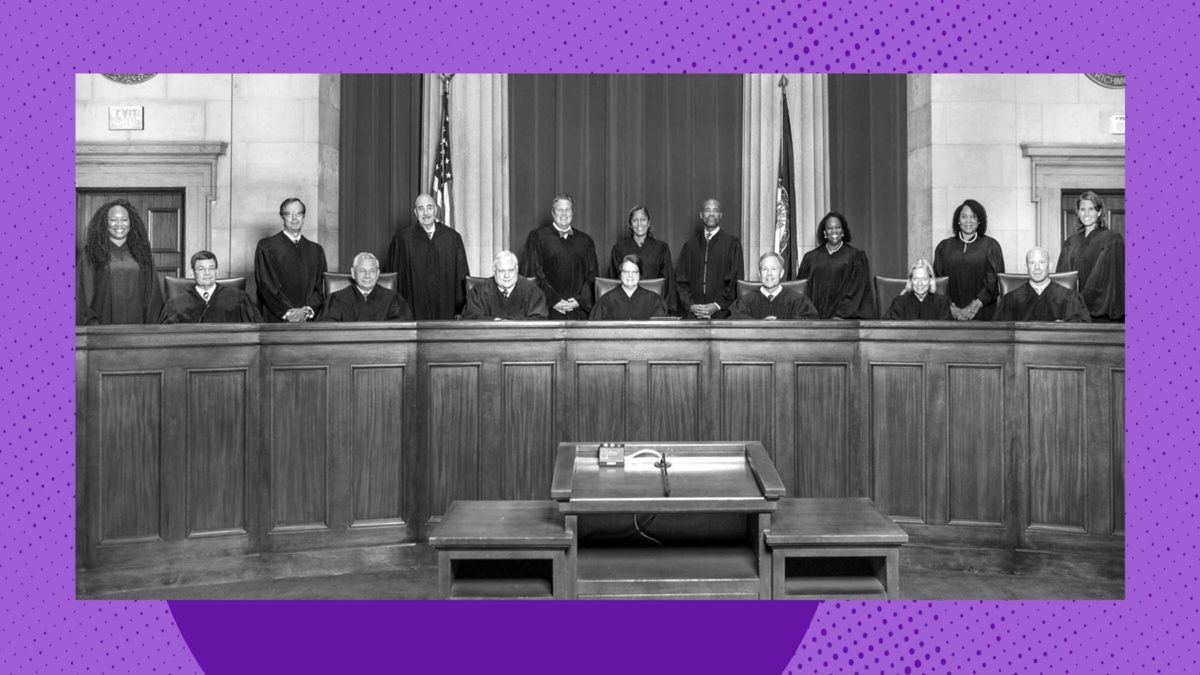More Democrats in Washington are embracing the idea of expanding the U.S. Supreme Court, which seems to be on the verge of overturning Roe v. Wade, ending affirmative action, and doing various other horrible things. In an op-ed published in The Boston Globe in December, Massachusetts Senator Elizabeth Warren warned that “without reform, the court’s 6-3 conservative supermajority will continue to threaten basic liberties for decades to come.”
But in 2021, as lawmakers debated the merits of Court expansion, their counterparts across the Potomac wasted no time following through. In 2019, Democrats won control of majorities in both chambers of the Virginia legislature for the first time since the Clinton administration. In just two years, they added six seats to the Virginia Court of Appeals, the state’s intermediate court, previously dominated by white men or former prosecutors. The expansion enabled the addition of Black women, civil rights lawyers, and former public defenders to the bench. (In Virginia, the General Assembly—both chambers combined—appoints judges by simple majority vote.) Today’s court is more diverse than ever as a result.
Judge Doris Causey was one of three Black women appointed to the new seats. Previously, she led the Central Virginia Legal Aid Society, which provides free civil legal services to lower-income Virginians. In an interview conducted by email with Balls & Strikes, Causey noted that there aren’t many former legal aid lawyers and public defenders on the bench, and said that her experience representing low-income people “brings a perspective to the decision room that has never been represented there before.”
Before her appointment, Causey was the first Black attorney—and the first legal aid lawyer—to be elected president of the state bar association. “I had a chance to see the big picture—concerns of fairness and confidence in our judicial system,” she said.

Reps. Eileen Fisher-Corn and Charniele Herring, who served as Speaker of the House of Delegates and House Majority Leader, respectively, when Democrats voted to expand the Virginia Court of Appeals (Photo by Bill O’Leary/The Washington Post via Getty Images)
Judge Dominique Callins, also a Black woman appointed to the court last year, echoed some of these sentiments. “When the bench reflects the diversity of the people who come before it, it instills in those people confidence in the administration of justice,” she told Balls & Strikes.
Callins, who previously practiced family law at a Northern Virginia law firm, also praised President Joe Biden’s decision to nominate a Black woman to the U.S. Supreme Court to replace the retiring Justice Stephen Breyer. “I find it regrettable that consideration of such candidates is viewed by some as ‘playing politics,’ instead of expanding the category of people to be considered,” Callins said. “I think and hope that this selection will help shift the collective default image of what justice—and a justice—looks like.”
A third Black woman appointee, Judge Vernida Chaney, was a criminal defense lawyer and public defender before taking the bench. In 2013, she represented a woman whose case drew statewide attention after she was charged with assaulting a police officer for throwing an onion ring that struck his uniform badge. Chaney managed to reduce the charges against the woman, who had been struggling with mental health challenges, and spoke out about the trend of prosecutors “weaponizing” the charge against defendants..
The expansion was part of a bill that widened the Court of Appeals’s jurisdiction, and added judges to help with the anticipated increased workload. During debate, Republican lawmakers argued the legislature should stagger the new appointments across more than one session. Delegate Kirk Cox, for example, acknowledged that more judges were necessary, but argued that the sitting legislature “should not get to pack the court with judges of their choosing.”
“When the bench reflects the diversity of the people who come before it, it instills in those people confidence in the administration of justice.”
Democrats, however, were undeterred, and took the opportunity to expand the court while they had enough votes to do it. “It’s important that when individuals look at the court, that they see they, too, can be on one of the highest courts in the state,” said House Majority Leader Charniele Herring after the judges’ election in August 2021. These appointees could serve until 2029, when the legislature will decide on their reappointment.
State appellate courts aren’t the only ones that could use expanding. Democrats in Congress have introduced a long-overdue bill that would create more than 200 new trial court judgeships, almost half of which would be located in the South. At a hearing on the bill last year, federal judges testified about the urgent need for help managing their workloads. “We cannot fulfill our obligations without congressional action to create new judgeships,” said Kimberly Mueller, Chief Judge of the U.S. District Court for the Eastern District of California.
Adding these seats would allow Biden to bring some much-needed diversity, both professional and demographic, to the South’s federal appeals courts. While Biden has rapidly diversified federal courts in other regions, he has only recently begun to do the same in states with two Republican senators, which includes most Southern states.
As this year’s midterm elections rapidly approach, Democrats in Washington risk losing their opportunity to act if they don’t do so soon. Virginia’s experience shows what movement on this issue could accomplish: In just two years in power, Democrats worked to expand and modernize a crucial appellate court. The result is a legal system that is more reflective of the state, and that will likely be fairer for criminal defendants, workers, and voters for years to come.
Portrait courtesy Virginia Court of Appeals.

